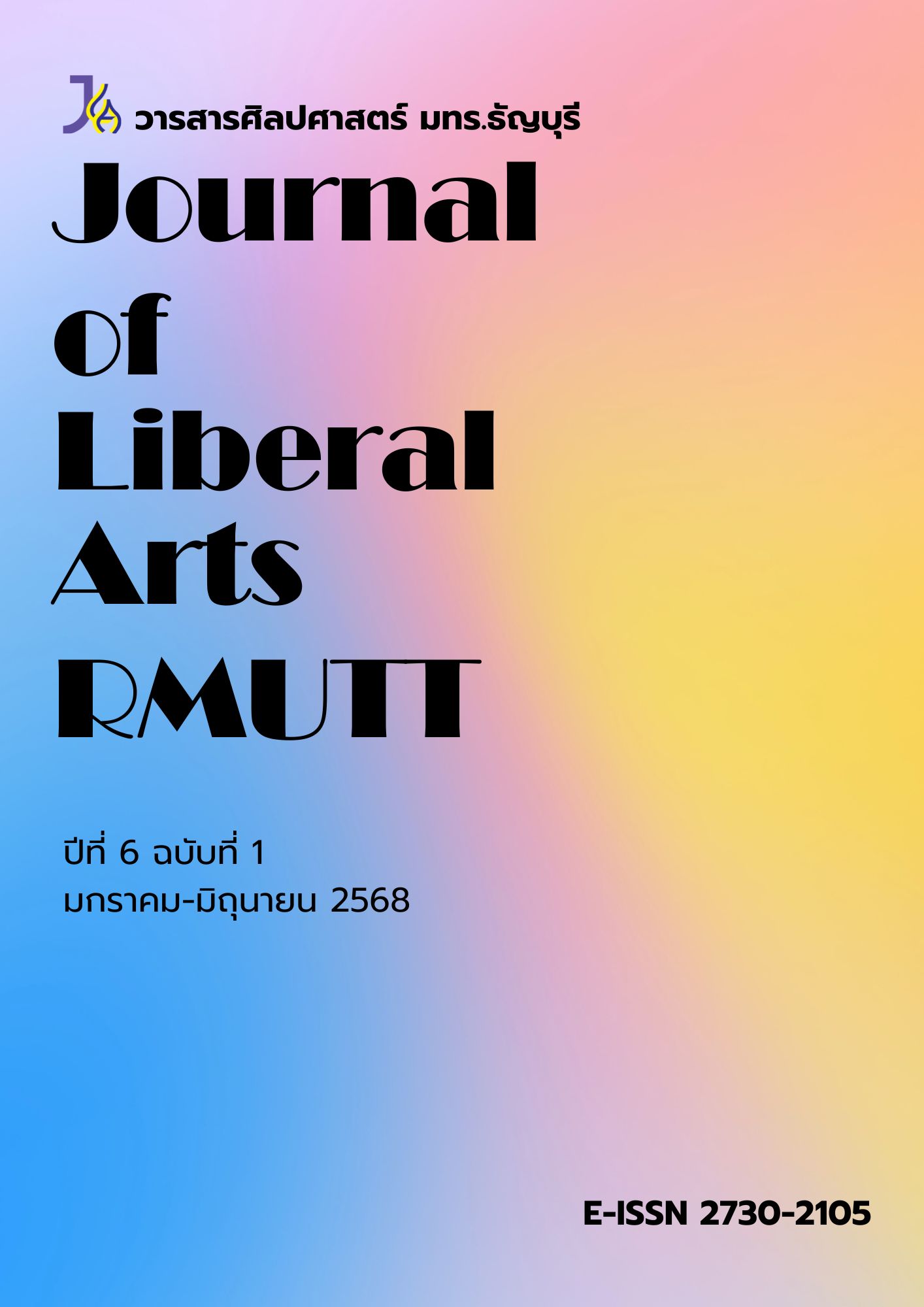Work-life Balance: The Role of Personal Factors and Motivation of Public Sector Personnel
DOI:
https://doi.org/10.60101/jla.2025.6.1.6556Keywords:
motivation, work-life balance, hygiene factors, motivating factorsAbstract
This research aimed to: 1) study the level of work-life balance among personnel at Budget Bureau, 2) compare the work-life balance of personnel at Budget Bureau based on personal factors, and 3) analyze the relationship between motivational factors and work-life balance among the personnel. The study adopted Herzberg’s Two-Factor Theory and the Work-Life Balance concept of Merrill & Merrill as the main conceptual framework. The sample group consisted of 300 personnel from the central office of Budget Bureau, determined using Taro Yamane’s formula. A questionnaire was used as the data collection tool. The reliability of the questionnaire, tested using Cronbach’s alpha, was 0.924, indicating a high level of reliability. The data were analyzed using both descriptive and inferential statistics. Independent sample t-test and One-way ANOVA were used to examine the effects of personal factors, while multiple regression analysis was used for motivational factors. The results showed that the overall work-life balance of personnel was at a moderate level. Personal factors such as age, number of children, and number of family members showed statistically significant differences in work-life balance. Furthermore, motivating factors including work achievement, recognition, and career advancement positively influenced all aspects of work-life balance. In addition, hygiene factors, such as organizational policies, job security, and remuneration, played a key role in reducing employee dissatisfaction. These results can be applied to develop policies and strategies that promote work-life balance in government organizations, including enabling personnel to live and work with greater happiness and efficiency.
References
กิตติ ชุณหศรีวงศ์. (2562). ความสมดุลของชีวิตการทำงานและครอบครัวของบุคลากรสายวิชาการ มหาวิทยาลัยรามคำแหง. วารสารสันติศึกษาปริทรรศน์ มจร, 7(2), 465-483.
เก่งกิจ กิติเรียงลาภ. (2565). วิเคราะห์การทำงานยุคใหม่ ด้วยสายตาแบบสังคมวิทยา. YouTube. https://youtu.be/JVIX_emNDHs?si=ZDQxTRNSgUEcW7gH
ประกาย ธีระวัฒนากุล. (2556). Work and life balance: สมดุลระหว่างงานกับชีวิต. ประชาไท. https://prachatai.com/journal/2013/03/45799
มนัท สูงประสิทธิ์. (2560). อิทธิพลครอบครัว ที่ส่งผลต่อตัวเด็กโดยตรง. Rama Channel. https://www.rama.mahidol.ac.th/ramachannel/article/อิทธิพลครอบครัว-ที่ส่งผ/
ส่วนบริหารงานบุคคล สำนักงบประมาณ. (2567). แผนการบริหารทรัพยากรบุคคลของสำนักงบประมาณ ปีงบประมาณ พ.ศ. 2566-2570. สำนักงบประมาณ. https://www.bb.go.th/topic-detail.php?id=16048&mid= 1076&catID=0
สำนักงานสถิติแห่งชาติ. (2566). การสำรวจภาวการณ์ทำงานของประชากรทั่วราชอาณาจักร ไตรมาสที่ 2: เมษายน - มิถุนายน 2566. https://www.nso.go.th/nsoweb/nso/survey_detail/9u
Best, J. W. (1977). Research in education. Prentice Hall.
Deci, E. L., & Ryan, R. M. (1985). Intrinsic motivation and self-determination in human behavior. Plenum Press.
Deshmukh, K. K. (2018). Work-life balance study focused on working women. International Journal of Engineering Technologies and Management Research, 5(5), 134-145. https://doi.org/10.5281/zenodo.1296934
Edwards, J. R., & Rothbard, N. P. (2000). Mechanisms linking work and family: Clarifying the relationship between work and family constructs. Academy of Management Review, 25(1), 178-199.
Gagné, M., & Deci, E. L. (2005). Self-determination theory and work motivation. Journal of Organizational Behavior, 26(4), 331–362.
Hackman, J. R., & Oldham, G. R. (1976). Motivation through the design of work: Test of a theory. Organizational Behavior and Human Performance, 16(2), 250–279. https://doi.org/10.1016/0030-5073(76)90016-7
Herzberg, F., Mausner, B., & Snyderman, B. B. (1959). The motivation to work. John Wiley.
Herzberg, F., Mausner, B., & Snyderman, B. B. (1990). The motivation to work. John Wiley.
Kassim, E., Ali, S., Jalaini, S., Yunus, N., Said, N., Latiff, D., & Salleh, F. (2013). Work life balance and job satisfaction: How relevant are they?. 2013 International Conference on Technology, Informatics, Management, Engineering and Environment, 62-66. https://doi.org/10.1109/TIME- E.2013.6611965
Manivannan, A. S. R. (2019). The mediating effect of work-life balance between motivation and job satisfaction and its impact on emotional intelligence of mystery shopping professionals. SEISENSE Journal of Management, 2(4), 14-34. https://doi.org/10.33215/sjom.v2i4.160
Merrill, A. R., & Merrill, R. R. (2003). Life matters: Creating a dynamic balance of work, family, time, & money. McGraw-Hill.
Pimpa, N. (2012). Amazing Thailand: Organizational culture in the Thai public sector. International Business Research, 5(11), 35-42. https://doi.org/10.5539/ibr.v5n11p35
Robbins, S. P., & Judge, T. A. (2019). Organizational Behavior (18th ed.). Pearson Education Limited.
Rujirawanich, P., Addison, R., & Smallman, C. (2020). Organizational culture and dynamic capabilities in successful Thai family businesses. Journal of Family Business Management, 11(2), 166-181. https://doi.org/10.1108/JFBM-05-2020-0043
Sabir, R., & Cura, D. (2021). The effects of work - life balance on the academic employees’ performance, motivation and job satisfaction among private and public universities of Kurdistan Region. The Journal of Contemporary Issues in Business and Government, 27(2), 674-678. https://doi.org/10.47750/CIBG.2021.27.02.083
Setiyani, A., Nawangsari, L.C., Djumarno, & Riyanto, S. (2019). The effect of work life balance and compensations on employee engagement with employee motivation as intervening variable for Y millenials generations in Java, Indonesia. In Proceedings of the 2nd international conference on inclusive business in the changing world ICIB - Volume 1. Jakarta, Indonesia.
Silaban, H., & Margaretha, M. (2021). The impact work-life balance toward job satisfaction and employee retention: Study of millennial employees in Bandung City, Indonesia. International Journal of Innovation and Economic Development, 7(3), 18-26. https://doi.org/10.18775/ijied.1849-7551-7020.2015.73.2002
Šimunić, A., Fartek, M., Antonio, A. A., Garraio, C., & Jørgensen, K. M. (2024). Singles-friendly work cultures and work-life balance during the COVID-19 pandemic: A study across four European countries. Journal of Workplace Behavioral Health, 39(4). 390-417. https://doi.org/10.1080/15555240.2024.2305900
Downloads
Published
How to Cite
Issue
Section
License
Copyright (c) 2025 Journal of Liberal Arts RMUTT

This work is licensed under a Creative Commons Attribution-NonCommercial 4.0 International License.













